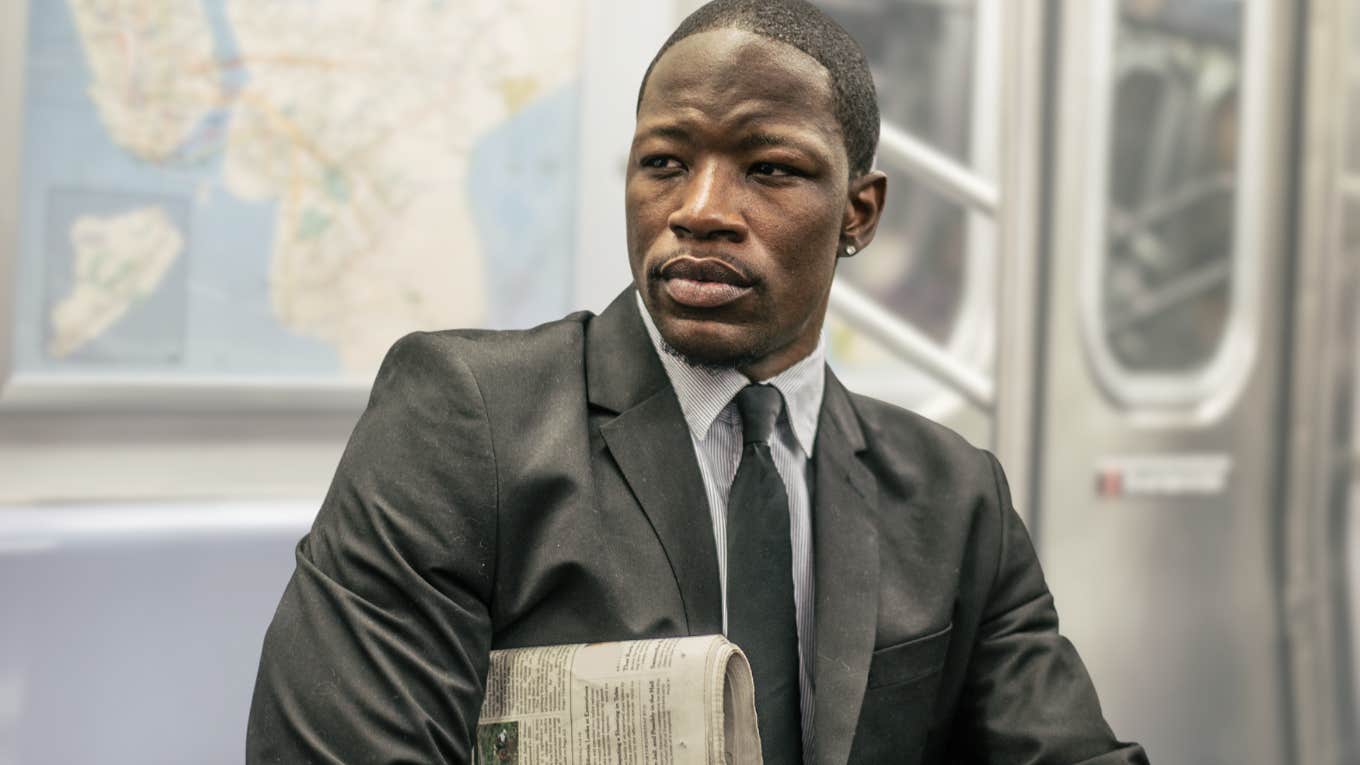Company Tells Job Applicant They’d Prefer Not To Hire Someone Who Uses Public Transportation To Get To Work
Not only is it incredibly exclusionary to applicants, but it also creates a cycle in which public transit remains inefficient and unsafe.
 oneinchpunch | CanvaPro
oneinchpunch | CanvaPro Economic hardship and job instability are growing rapidly, affecting workers across the U.S. as they struggle to support themselves and their families. The unpredictable job market only makes it all worse.
For one man who shared a job interview experience on Reddit, finding work has been especially hard, not because of his qualifications or experience, but because he doesn’t have a car. Surprisingly, since the pandemic, public transportation has taken a significant hit in the U.S., with only around 3% of the population utilizing trains, busses, and subway systems to get to work.
According to his post, the manager preferred that anyone hired for the role be someone who did not rely on public transportation as a means of commuting.
A company told a job applicant they’d prefer not to hire anyone who commutes using public transportation.
“As someone who used to walk 5 miles and take two trains daily, still always arriving early, this really stuck with me,” he wrote in his post. “Apparently, it was a ‘preference’ of the manager.”
In a telephone interview with the company, the hiring manager wasn’t shy about asking “exactly” how he would be arriving to work, asking about a driver’s license, car, and transportation without it being a condition of employment.
As many commenters noted, this kind of questioning from a hiring manager, especially when the job doesn’t require a license or car, could be a type of financial discrimination, although state laws likely vary.
Commenters agreed that the employee shouldn’t have to disclose his preferred method of commuting or whether he owns a car if it is not integral to the role he is applying for.
The Equal Employment Opportunity Commission (“EEOC”) considers car ownership “financial information,” so being asked about it during an interview and subsequently turned away could be considered unfair discrimination.
Of course, he would need to contact an employment lawyer to see any real change or compensation from this company, which often isn’t affordable or accessible for applicants without job stability or income.
 PixelsEffect | CanvaPro
PixelsEffect | CanvaPro
“These companies are out of their minds,” one commenter added.
“I used to work for the Transit Agency in a major city. I was told we needed reliable transportation to get to work and the public transit (that we were working on) wasn’t considered reliable.”
If they want to control your commute and how you arrive to work, they should be the ones to pay for it — whether that’s a car stipend, a company-owned car, or some other means of transportation.
They can set expectations for arriving at work on time, but they can’t reasonably expect people not to use public transit.
Many workers are forced to bear the burden of failing public transit if they even have access to it.
If a worker has the “luxury” of living in a city where public transportation is even available, let alone accessible, often the infrastructure is failing or inefficient.
Sadly, public transportation is the only option for many, especially those without the means to own a car or the ability to procure a license.
In an experiment conducted by “Better Block” on TikTok, creators revealed the true barriers that employees walking to work or using public transportation really have to deal with. From not having a safe and accessible sidewalk to make it to the bus stop to walking miles to hop on a train, and even worse, relying on other co-workers or friends to drive them — it’s an unstable, unsafe, and widely unreliable system.
But that doesn’t make it okay for companies to decide that public transportation is “too unreliable” for use, especially if they have the means to support workers with a company car, a stipend for ride-shares, or more reliable transit.
Ultimately, refusing to even consider hiring an individual based on their commuting preferences would be difficult to prove, but that's what makes it even more nefarious and discriminatory.
Zayda Slabbekoorn is a News & Entertainment Writer at YourTango who focuses on health & wellness, social policy, and human interest stories

